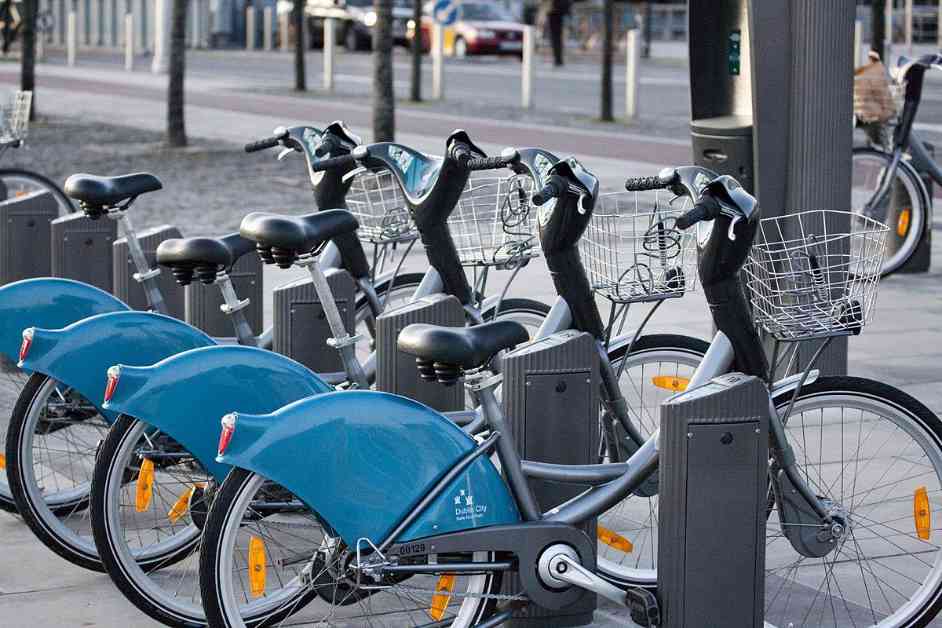Dublin Bikes Expansion: Addressing Critical Gaps in Access
The Dublin Bikes scheme has undoubtedly been a game-changer for the city, promoting sustainable transportation and reducing congestion on the streets. However, as Fine Gael councillor Naoise Ó Muirí has pointed out, there are critical gaps in the scheme’s coverage that need to be addressed to ensure fair access for all residents.
When Dublin Bikes was first introduced in 2009, it was ahead of the curve compared to other global cities like New York City. However, over the years, the system has failed to expand beyond the canals, leaving areas like North Dublin and parts of Dublin South Central without access to this vital public service. This lack of growth represents a missed opportunity for Dublin to build on its early success and become a leader in sustainable transport.
In North Dublin, residents are almost entirely excluded from the Dublin Bikes scheme, despite significant investments in cycling infrastructure in the area. For example, the coastal cycle route and the Clontarf to Connolly corridor, which cost €62 million, have made cycling a popular mode of transportation in these areas. However, without access to bike-sharing services, many residents are unable to fully benefit from these investments.
Councillor Ó Muirí rightly points out that this is not just an oversight but an equity issue that needs to be addressed. All residents, regardless of where they live, contribute to public funding through taxes like the Local Property Tax. Therefore, they should have equal access to sustainable transportation options like Dublin Bikes. By expanding and regulating bike-sharing services to underserved areas, Dublin can foster a culture of cycling that is inclusive and accessible to all.
Benefits of Expanding Dublin Bikes
Expanding the Dublin Bikes scheme to cover areas like North Dublin and Dublin South Central would bring a host of benefits to the city. Firstly, it would improve access to affordable and environmentally friendly transportation options for residents in these underserved communities. By providing convenient access to bike stations, more people would be encouraged to cycle for their daily commute, reducing reliance on cars and easing traffic congestion.
Additionally, expanding Dublin Bikes would promote public health and well-being by encouraging residents to incorporate physical activity into their daily routines. Cycling is not only a great form of exercise but also a sustainable mode of transportation that can help reduce air pollution and greenhouse gas emissions. By making cycling more accessible to all residents, Dublin can create a healthier and more sustainable city for future generations.
Furthermore, expanding Dublin Bikes would contribute to the city’s economic growth by supporting local businesses and tourism. With more people cycling around the city, local shops and restaurants would see increased foot traffic, boosting their sales and revenue. Tourists visiting Dublin would also benefit from a bike-sharing service that allows them to explore the city’s attractions easily and affordably, enhancing their overall experience.
Building a Futureproof City
As Councillor Ó Muirí emphasizes, expanding Dublin Bikes is not just about addressing immediate access issues but also about building a futureproof city that is resilient, inclusive, and committed to all residents. By ensuring that sustainable transportation options are available in all parts of the city, Dublin can create a more connected and accessible urban environment for everyone.
A more connected, safer, and greener Dublin is within reach, but it requires proactive measures to address the critical gaps in the Dublin Bikes scheme. By prioritizing equity and accessibility in urban planning and transportation policies, Dublin can lay the foundation for a more sustainable and vibrant city that benefits all residents. Expanding bike-sharing services to underserved areas is not only a practical step towards achieving this vision but also a symbolic gesture of Dublin’s commitment to creating a more inclusive and sustainable future.












